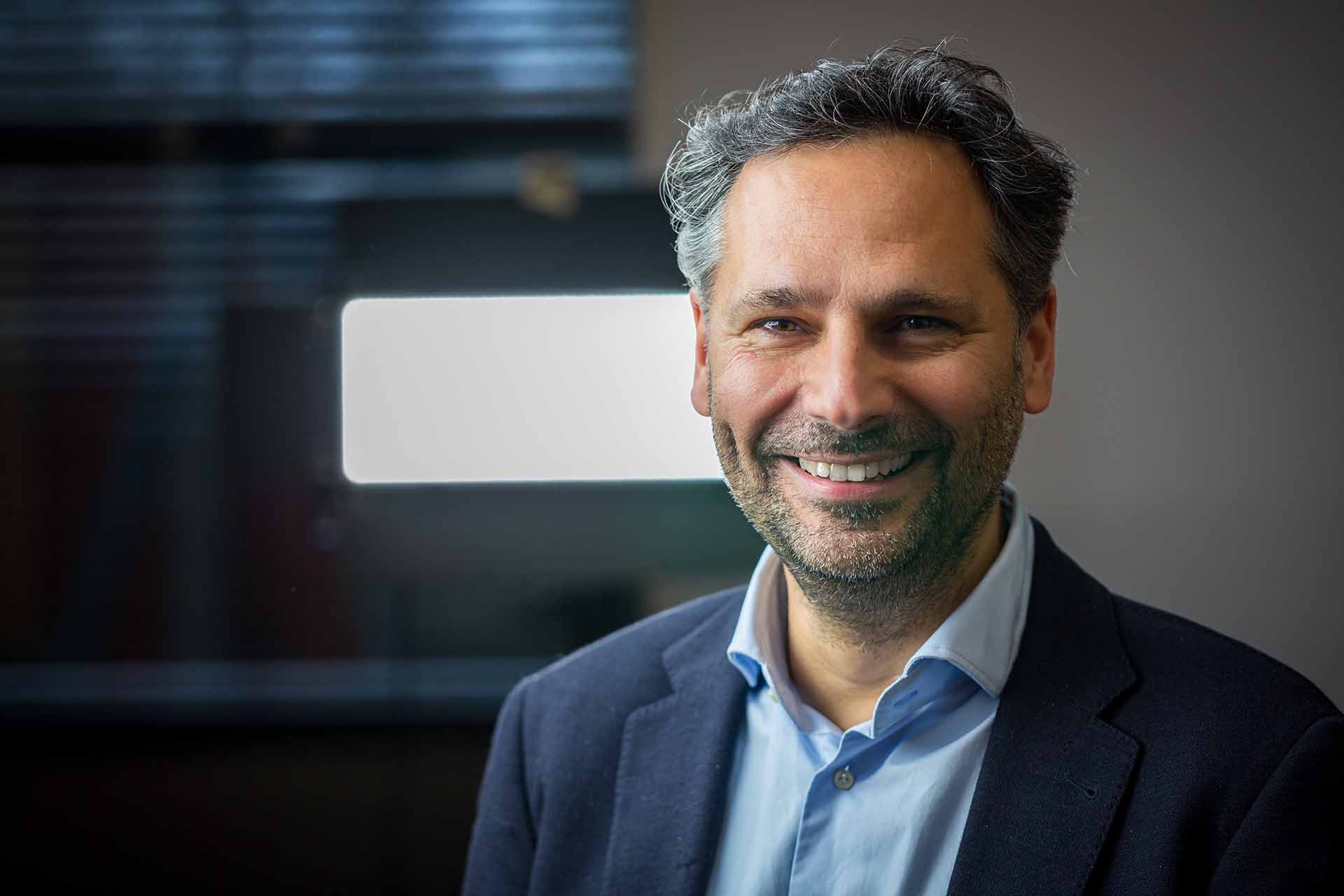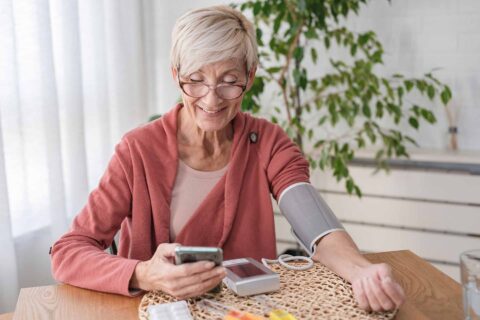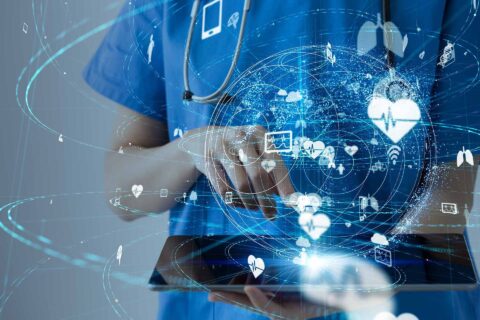After three months, it is already possible to predict whether premature infants will develop properly. As a result, they can be successfully treated at an early stage. Thanks to Early Moves, this analysis can now be done online. Meet the eighth and final finalist of the National Care Innovation Award.
Photo: Jos Hummelen, ROM Utrecht Region
Marco D'Agata is CEO of Neolook Solutions, the company behind Early Moves. The system was developed at the request of professor and pediatrician Arie Bos of the University Medical Center Groningen. He is an international expert in the field of infant movements and more specifically movements of premature babies.
If a preterm did not develop properly in the past, it was discovered too late, for example, not until the crawling phase, or when children started walking. D'Agata: "And then the cards were already shuffled. Those children then often ended up in wheelchairs."
"What we know now is that you can do movement analysis from birth. That predicts whether a child is at risk for movement. The first analysis takes place when the baby is still in the incubator. The second follows after three months. By then, many babies are at home. "At three months, such a baby then has to go to the hospital for half-hour observation. That's quite an undertaking for the parents. So in Groningen the caregivers often go to the children, but then they can only do two a day."
Measurement online
"With Early Moves, we can do the measurement at three months online. Parents are called by the hospital and are on a call. That parent can use the cell phone to have the recording made by the hospital, coached by a nurse. In fact, that recording must meet certain requirements. Is there enough light? Are the movements spontaneous without distractions? From the hospital, the healthcare professional gives instructions for that. Such a recording lands directly at the UMCG and is assessed and scored there."
Health insurers would like to make Early Moves available nationwide. The videos are not the problem. Judging is. That requires special expertise that is now available mainly in Groningen. So D'Agata and his company have built an AI engine. It will learn to assess the videos.
Camera in hospital
Early Moves, which won the 2023 Computable Award for Healthcare, has not only made analysis at three months at home easy, it has also addressed the initial measurement in the hospital. D'Agata: "Previously, someone had to sit next to the incubator to score the movements. The next step was a tripod with a camera next to the incubator."
"In the UMCG, we can now use the existing incubator cameras that are aimed at the infants anyway. Then the doctor only has to indicate in advance when a particular child is to be filmed for half an hour. At night, we then neatly pull the video through the AI to pick out high-risk cases.
More hospitals
The first trial with twenty children has just been completed. The next trial is now open. Professor Bos is hooking up hospitals in the Netherlands for it. But neighboring countries in Europe also want to participate, such as Swedish and German hospitals. "We have also been approached from Australia. Because of the long distances there, it is difficult to make the videos for the analyses. That sometimes costs a thousand euros for a five-minute recording. So we just put an Australian version in our cloud. In a few days that went live. So we can hook new hospitals very quickly."
Transition phase
Neolook has existed since 2020 as a spin off from Philips, where D'Agata was employed. At first it was a venture within Philips. Right at the start, a series of commercial deals were made. A first round of financing was done and the second is coming this year.
Right now, the company is not quite breaking even, but that is normal. D'Agata expects that to take another year or two. The company is in the transition phase from start-up to scale-up. It now employs 15 people. "If we win more contracts now, we will also have to hire more people. That is always a tough balancing act, because we are at the tipping point to scale. Then it gets interesting, because not only foreign hospitals are interested, even the big multinationals are already making deals with us."
Abundance of ideas
D'Agata, like the other finalists, has a tip for startups. "There is no shortage of ideas. In fact, there is an abundance of ideas. Ideas don't belong to anyone, they float around and go from mouth to mouth. What matters is whether you can turn an idea into something so valuable that someone else wants to pay for it. So you have to put something on the table on day one that the party on the other side of the table is willing to put money into."
Prize money National Care Innovation Award
What will they do with the prize money? "I would like to put the people who made this possible, the nurses on the floor of UMC Groningen, in the limelight, as well as our own employees who work so hard to get it all off the ground. It's nice when they get something in return for all their great work."
"But I would like to do something else. We just launched the Neolook One. That's an intelligent camera system with three sensors in it. You can put those on one of those incubators and then you can automatically take the videos that you can do the measurements with. Those are about 3,500 each. For a teaching hospital, that's quite doable, but not every hospital has that budget. I would donate a few of them to such a hospital that would like to participate. With 120 of those systems, you already have national coverage. That's pretty close."












